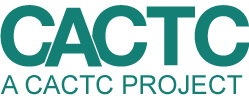This article is sponsored content from Cortland Prevention Resources: A Division of Family Counseling Services
As summer vacation approaches, it can be a challenging time for both youth and parents. Adolescents have plenty of free time, while parents often struggle to balance supervision with their daily responsibilities. During these months, young people may be more exposed to the dangers of alcohol, other drugs, and risky behaviors such as reckless driving. To help prevent underage drinking and keep teenagers safe, parents can implement the following S-U-M-M-E-R strategies:
Set rules and consequences: Establish clear rules and fair consequences for breaking them. Data shows that when children understand the consequences of drinking, they are less likely to engage in binge drinking. Students in Cortland County who reported their family have clear rules on alcohol use were half as likely to use alcohol in the past 30 days. Remember, parental disapproval is still the primary reason young people choose not to drink alcohol.
Understand and communicate: Engage in open conversations with your child about the dangers and consequences of alcohol use, starting as early as age nine. Consistently emphasize family rules and expectations about alcohol consumption. Parents have a significant influence on their child’s decision-making, so don’t avoid these discussions. Students in 7-12th grade in Cortland County who felt close to their mother or father were about half as likely to report alcohol use than students who did not feel close to either parent.
Monitor activities: Make it difficult for teenagers to access alcohol in your home. If you have alcohol, keep track of the quantities or store it in a locked cabinet or cupboard. 7-12th grade students in Cortland County who reported easy access to alcohol were about five times more likely to report using alcohol in the past 30 days compared to students with hard access. Limiting access to alcohol can significantly reduce the likelihood of underage drinking.
Maintain involvement: Get to know your child’s friends and their parents, coaches, and other adults in their lives. Stay connected without being intrusive, and show your child that you care about their well-being. Students who reported that their parents know where they are and who they are with when they are not home were about half as likely as students whose parents did not know their whereabouts to report using alcohol.
Encourage summer activities: Encourage your child to participate in structured activities such as Scouts, 4-H, sports, church groups, or other youth programs. Alternatively, they could explore job opportunities, camps, or volunteer work. Involvement in these activities can keep them occupied and focused throughout the summer.
Reserve time for family: Despite teenagers often seeming disinterested in spending time with their families, it is still beneficial to maintain a strong connection. Plan family meals, vacations, and outings to reinforce family bonds. Studies show that quality family time ranks high among factors contributing to happiness in adolescents. Students who reported that their parents do fun things with them are less likely to report using alcohol than students that don’t think their parents do fun things with them.
By implementing these S-U-M-M-E-R strategies, parents can reduce the risk of underage drinking and promote a safer, more enjoyable summer for their teenagers. Establishing boundaries, fostering open communication, and encouraging positive activities can help young people make better choices and avoid the dangers associated with alcohol and other risky behaviors.



